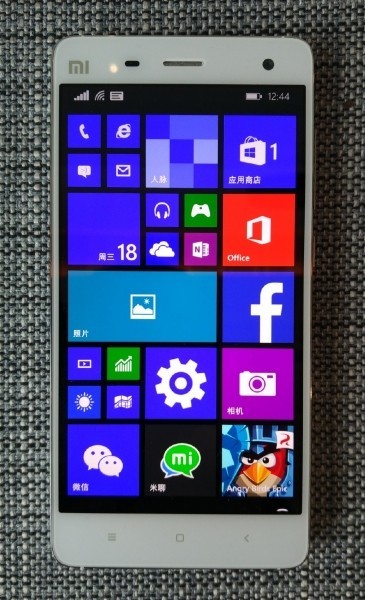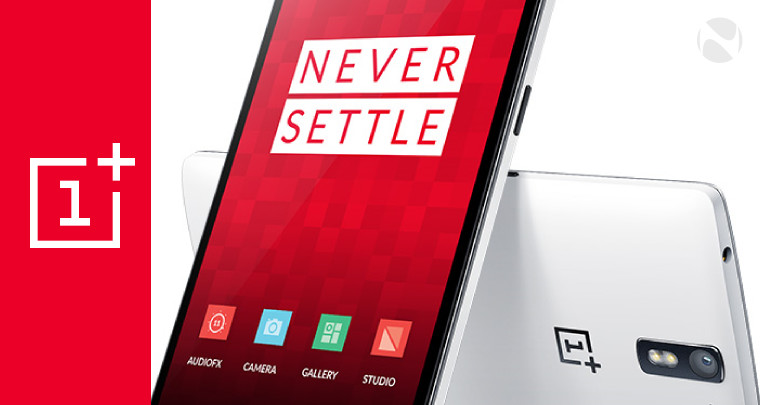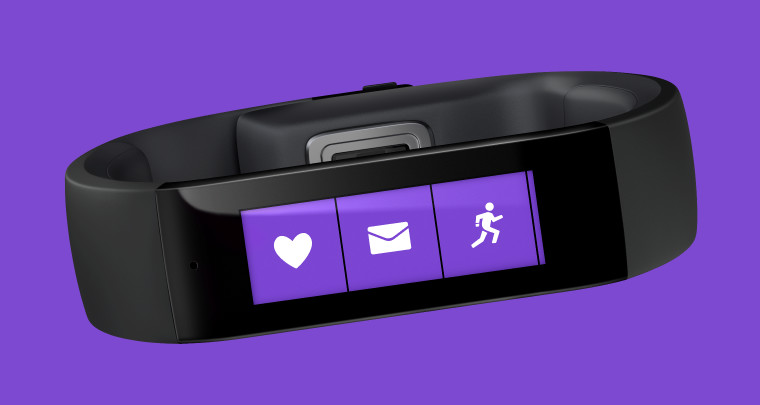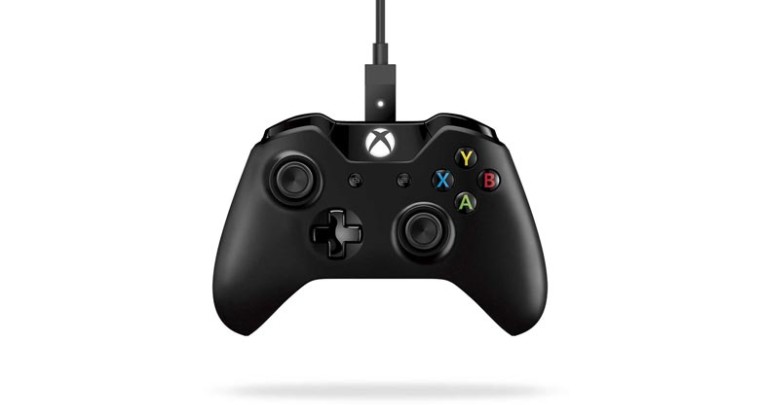7 Days is a weekly round-up of the Editors' picks of what's been happening in the world of technology - written with a dash of humor, a hint of exasperation, and an endless supply of (Irish) coffee.

Well, that was quite a week. We finally got some closure on a few big storylines that had gradually been playing out in the thrilling, never-ending saga of the tech world. We also got a couple of surprises – and not all of them were pleasant. And, as ever, there were also a few exciting teasers of what’s still to come…
Indeed, it was such a jam-packed week, who knows what you might have missed? Let’s get stuck in.

We begin with the disappointing news that the Oculus Rift appears to have been delayed, and is now not expected to go on sale until 2016. The device is widely regarded as one of the most promising in the nascent virtual reality space, but it will soon have to deal with new competition from the likes of Samsung and HTC.

BlackBerry announced a new tablet priced at an eye-watering $2,300 this week – although it’s not actually a BlackBerry tablet at all. Instead, the horribly named ‘SecuTablet’ is actually just a Samsung Galaxy Tab S 10.5 LTE 16GB (again, what a name), which has had its security credentials beefed up for government-level operations with the help of IBM and Secusmart, a German encryption company that BlackBerry acquired in 2014.
Microsoft rolled out the first preview of its new Skype for Business client on Monday, which will eventually replace its Lync communications platform, widely used in organizations around the world. Originally announced last year, the new app includes many features that will be familiar to existing Skype users, including access to the main Skype user directory.

On the same day, Microsoft also launched its Office 2016 preview for IT professionals and developers. A private preview of Office 2016 had already been running for a limited number of users for some months, but this announcement expanded availability to all commercial Office 365 customers.

The company also announced the full rollout of Office Delve to all eligible Office 365 business customers worldwide. Microsoft says that Delve is designed to bring relevant and timely information, assets and insights into users’ workflows, helping them to work more efficiently.

Microsoft released build 9926 of its Windows 10 Technical Preview back in January, but after more than seven weeks, those testing the new OS were getting very impatient for a proper update – especially those on the ‘Fast ring’ for new releases. On Monday, it was confirmed that yet another new build – 10036, which had leaked last week – would not be coming to Windows Insiders, adding to the growing frustration.
Microsoft recently acknowledged that it has been a bit too conservative in the rate at which it rolls out new builds, but on Wednesday, Gabe Aul (head of the Windows Insider program) told Neowin that the company now plans to deliver at least one new build per month.

Later that day, Microsoft rolled out Windows 10 Technical Preview build 10041:
- Download build 10041
- What’s new in the latest build
- Image gallery
- Known issues in build 10041
- How to fix problems with Mail, Calendar and People not opening in 10041

While Microsoft’s next-generation Spartan web browser was expected to be included in build 10041, it didn't make the final cut for this release. Gabe Aul told Neowin that there are still “a few more tasks” that needed to be completed in Spartan’s current development phase, before the first preview build is ready for release. However, you can enable Spartan’s new Edge web rendering engine in Internet Explorer on build 10041.
However, Neowin was never going to settle for just that...! Instead, we managed to get hands-on time with Spartan, revealing new details about how Cortana will bring augmented search capabilities to your browsing experience, using contextually relevant information to provide far more intelligent and useful search results. We also revealed new info about Spartan’s Reading Mode features.

If you’ve installed Windows 10 Technical Preview build 10041, be sure to let us know how things have been going so far. Loads of our readers have already shared their experiences having installed the new build, and we’d love to hear about yours too, so join in the discussion!

While development of Windows 10 continues, Microsoft formally announced the broad strokes of its launch plans for the new OS on Wednesday. It will be released this summer in 190 markets and 111 languages, which aligns with information that sources revealed exclusively to Neowin last month, indicating plans for the OS to hit RTM by June.
Microsoft also announced Windows 10 hardware requirements, both for PCs and for phones. Next-generation Windows smartphones will support up to 8-inch displays with QSZGA (2560x2048px) resolutions, and 4GB of RAM.
The company also confirmed upgrade paths to Windows 10, as well as detailing new multitouch gestures for precision touchpads and touchscreens.

Microsoft said this week that it would “upgrade all qualified PCs, genuine and non-genuine, to Windows 10”, implying that anyone with a “non-genuine” pirated copy of Windows would effectively get a free copy of Windows 10, along with everyone else.
But the firm later issued a statement clarifying its position, although it didn’t seem to change things much, if at all. Microsoft said that “although non-Genuine PCs may be able to upgrade to Windows 10, the upgrade will not change the genuine state of the license”. In other words, if your copy of Windows is pirated, it will still be treated as such even after you upgrade to Windows 10.
But yeah, you can still get a free upgrade to Windows 10 even if your copy of Windows is pirated – so practically speaking, Microsoft’s clarification appears to make no real-world difference for software pirates at all. However, Microsoft does appear to be leaving the door open for the possibility of charging these unlicensed users to activate certain features in the OS at some point - but the whole situation still remains far from clear.
But one Microsoft announcement this week could make a very big difference for security on PCs in the future. On Tuesday, the company revealed Windows Hello, a new authentication system that ditches passwords completely, relying on hardware and software combining to verify your identity using biometric data.
It also unveiled Passport (yep, that name has been exhumed from the Microsoft crypt), a new system intended to replace passwords in a different way, using smartphones, wearables and other devices to authenticate access to content and networks.
Unfortunately, while Microsoft released its new Windows 10 build for PCs this week, those awaiting a new build for phones were left disappointed, although a new build was revealed in leaked images on Monday.

But many Windows Phone fans were stunned by another Microsoft announcement on Wednesday. The company revealed that it’s been working with Xiaomi, China’s largest smartphone manufacturer, on a new Windows 10 ROM that can be flashed onto Xiaomi’s flagship Android phone, the Mi4. Another Android handset, the still-unannounced ZTE Nubia 9, was later spotted running Windows 10 too.
The implications here are extraordinary: if Microsoft can create a portable ROM - similar to that deployed by Cyanogen to tens of millions of Android phones - to easily install Windows Phone onto Android hardware, it could open up a whole new front in the battle for smartphone supremacy.

And as if that wasn’t enough, Microsoft also revealed ‘Project Milkyway’, which aims to “delight users by keeping their mobile devices updated to latest release within 4-6 weeks of release” [sic].
Microsoft’s latest Windows Phone OS update – Lumia Denim – has been appallingly slow to roll out. After first being announced at the beginning of September, the update is still trickling out to devices around the world, six months later.

And one more nugget of good news on the MS mobile front: smart dialling – which lets you use your phone’s alphanumeric keypad to quickly bring up contacts – is returning in Windows 10 for phones. This feature was last seen on Windows Mobile 6.5.

Earlier this month, Microsoft launched (another) two lower-end Windows Phones, the 5-inch Lumia 640 and 5.7-inch Lumia 640 XL. Both feature relatively modest specs, but a new version of the 640 XL appears to be on the way to China, featuring some much higher specs than the standard model.
But having already launched two affordable handsets this month, no-one expected Microsoft to unveil any more of them for a while.

Surprise!
On Thursday, the company announced the new Lumia 430 Dual SIM, the cheapest Windows Phone ever, priced at just $70 – although, as you can probably imagine, its spec sheet matches its modest price tag.

Cast your mind back to February 2014, and you may recall that Microsoft added a bunch of new hardware partners to its Windows Phone platform. One of those companies was Lenovo – but despite an executive's promise that its first Windows Phone handset would launch later that year, we’re still waiting.
But on Wednesday, Microsoft announced that Lenovo’s first Windows 10 phone will launch this summer, adding that it is expected to become a major partner for the new OS.

Sony began the rollout of its Lollipop update for the Xperia Z3 and Z3 Compact on Monday, promising to expand availability to other Xperia Z Series devices in the next couple of weeks. However, the company has still not clarified its position on rolling out Android 5.x to all of its other devices, after previously stating that only the Xperia Z range would be eligible.

OnePlus made quite a few headlines this week (although it's never really struggled in that department):
- Oxygen OS and CyanogenMod 12S, both based on Android Lollipop, coming this month
- Price increases in Europe of up to 17% on the OnePlus One
- A new 10,000mAh battery pack for $14.99
- A teaser image hinting at a possible gaming-related product

There was bad news for HTC owners on Wednesday, as the company confirmed that it does not plan to release any further OS updates for the One M7, its 2013 flagship.
But there was great news for those planning to buy HTC’s new One M9 flagship – well, those in the United States, anyway – as it announced the awkwardly named ‘UH OH’ protection program, offering a free replacement to anyone who cracks their M9’s display or drops it in the toilet.
There were big changes at the top of the company too, as HTC issued a press release on Friday stating that Peter Chou had stepped down as CEO after more than ten years in the job, and will be replaced by the firm's chairwoman, Cher Wang. Chou will remain at the company in a product development capacity.

Google announced this week that it is now, for the first time, using people to manually screen all new apps – checking them for malware, adware and illegal content – before they are published on its Play Store. Until recently, its Android app store had relied solely on automated systems to check apps before making them available to users – a system that had proved less than reliable.

Over in the UK, pre-orders opened for the new Samsung Galaxy S6 and Galaxy S6 Edge on Friday – but the prices of the two devices are a little higher than some had expected. Off-contract, the cheapest Galaxy S6 will cost £599.99, but the S6 Edge – which features a unique display that curves around the left and right edges of the device – will start at £760.

Pre-orders are also open in the UK for the Microsoft Band, as the company announced that Brits will be the first customers outside of the United States to get their hands on it. Priced at £169.99, the device will be available through numerous leading retailers, and deliveries are scheduled for April 15.
Meanwhile, in the US, Microsoft revealed a significant expansion of retail availability for the Band, which will now be stocked in Best Buy and Target stores across the country, as well as on Amazon.com.

Back in the UK, the nation’s largest carrier, EE, announced its replacement for the much-loved Orange Wednesdays service, which offered 2-for-1 cinema tickets every week until EE pulled the plug on it. In its place, the carrier has announced EE Film Club, which offers its customers the opportunity to pay 35p to send a text to get a promotional code so they can log in to Wuaki.tv and pay £1 to rent a movie once a week.
Are these guys serious?

The Wall Street Journal claimed this week that Apple will unveil a new subscription TV service this summer, priced at around $35 a month, with popular channels like ESPN, ABC and FOX all said to be onboard. Further details emerged a few days later regarding the new Apple TV set-top box, which will reportedly include Siri voice controls, HomeKit home automation integration, and greatly improved hardware.

Nintendo announced on Tuesday that it’s working on new hardware of its own: a new games console, currently codenamed ‘Project NX’. However, it added that it will not reveal any further details about its plans until 2016.
But it was Nintendo’s other announcement that really got people excited. The company revealed that it's finally entering the mobile gaming space, partnering with Japanese games firm DeNA “to develop a new core system compatible with a variety of devices including PCs, smartphones and tablets as well as Nintendo’s dedicated video games systems” – and it’s coming later this year.

Microsoft launched its new Xbox Music ‘cloud locker’ service on Wednesday, a feature that was first spotted in late 2014. And just as we exclusively revealed in December, the new service allows you to store your music collection on OneDrive, and then access it anywhere via Xbox Music, on PCs, smartphones, tablets, consoles and on the web.

A United States appeals court has ruled that Microsoft must face class action claims alleging a design defect in its Xbox 360 console, which is said to cause damage to game discs ‘even under normal playing conditions’, rendering them unusable.

Meanwhile, the communications director of the World Bank Group has called for a class action lawsuit against Microsoft, after his son racked up a credit card bill of more than $4,500 on digital content purchased on his Xbox, over a period of several months. In an extended rant, Jeremy Hillman admitted that he and his wife “accept our responsibility in this”, but went on to blame Microsoft for “appalling treatment” in refusing to refund the money, and alleged that the company had made a deliberate, neglectful decision to avoid introducing more robust controls to prevent such incidents.
Mr Hillman appears to have won himself very few fans with his diatribe - particularly in the comments section of our article - although he claims his words represent the sentiments of “thousands and thousands of parents who have fallen into this same situation”. Either way, the ridicule also extended on to Twitter:
…and one for the Spanish speakers in the house:
…and it made its way onto Reddit too, where Major Nelson (aka Microsoft’s Larry Hryb) also jumped in to the discussion about Neowin’s article on Mr Hillman’s claims.

But enough of that nonsense, and back to things that matter – and indeed, we end this summary of the week’s top tech news with a great article from Neowin editor Chris White, reporting from SXSW (South by Southwest), the annual music, film and interactive conference and festival held in Austin, Texas.
Among the many new technologies being discussed there was ‘bioprinting’, which aims to 3D-print working human organs from a patient’s fat cells. One of the most promising areas in which this new technology is being used now is in reconstructive surgery for the nipple areola complex - an incredible development for the millions of women who must undergo a mastectomy due to breast cancer.
And while it may be a while before scientists are able to 3D-print fully functional human hearts, the potential for this technology is incredibly exciting.
...and that’s the perfect note on which to end for another week. Have a great weekend!

















4 Comments - Add comment